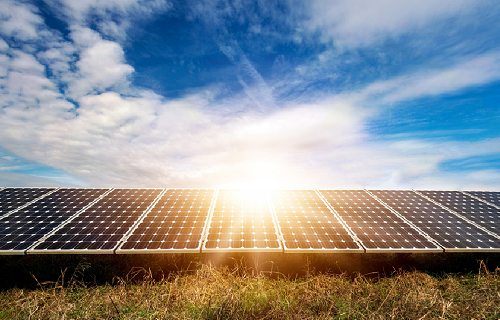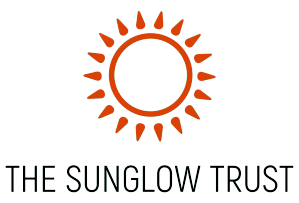Renewables
Significant opportunities are likely to arise in moving away from oil – which dominates the economy but represents only 1% of total employment in the country. In contrast, a transition to green energy will offer more job opportunities.
Solar Power:

 With high annual levels of uninterrupted sunshine Iraq has a strong potential renewable energy base through solar power and additionally in some areas economically viable wind speeds. In recognition of this in early 2022 Iraq’s Central Bank approved a ID1 trillion ($680m) fund for renewable energy projects in the country.
With high annual levels of uninterrupted sunshine Iraq has a strong potential renewable energy base through solar power and additionally in some areas economically viable wind speeds. In recognition of this in early 2022 Iraq’s Central Bank approved a ID1 trillion ($680m) fund for renewable energy projects in the country.
A number of solar power projects have been awarded to foreign companies with more to follow. The country’s Electricity Minister Adel Karim said the Ministry has already finalised contracts with foreign firms to build solar power stations with a total generation capacity of 7,500 MW. “The projects awarded recently were just part of phase one of a comprehensive plan by the Ministry to expand reliance on renewable energy,”
“There are plans to sign new contracts with a number of regional and international companies to build more solar power stations that will produce a further 5,000 MW.” Iraq has signed multi-billion-dollar agreements with Total Energy of France, Abu Dhabi-based Masdar and other companies to build seven major solar power stations in various parts of the country.
Power generation from renewable energy sources would increase Iraq’s energy security and reduce the power sector’s greenhouse gas emissions, which account for almost half of Iraq’s total emissions, due to its high dependence on fossil-fuel-fired power plants and the heavy deployment of polluting diesel generators. There is a clear need to explore cleaner alternatives, such as renewable energy systems, yet the deployment and integration of these systems would be hindered by the same structural woes that have crippled the electricity sector, and which go far beyond generation issues. Chronic under-investment and a lack of reforms in generation, transmission, and distribution has left Iraq long struggling with electricity shortages.
Renewable energy sources are intermittent and do not generate fully-dispatchable electricity as power generation is available when weather conditions allow and not necessarily when demand requires. Mitigating this involves flexible power systems, expanded and modernized grid capacity, and energy storage systems, among other measures. Significant transmission capacity is also required to carry the generated electricity over large distances from the renewable energy farms to the load centers. Without grid-scale storage, the renewable energy produced would only be injected into the grid when the latter is available. This all requires hefty capital investments and confidence in the single buyer – the Iraqi Government.
Solar power & mini grids:
 Small scale localised systems independent of the grid (or with option to integrate) are however an ideal and workable option to help address demand issues while the national infrastructure improves. They can be swiftly deployed across rural districts where farmer are struggling with the effects of climate change and likewise for retuning populations to regain a foothold on lands they were previously displaced from. Mini solar stations can be quickly installed providing electricity on demand with only a minimum of back-up battery storage capacity required to meet basic daily needs.
Small scale localised systems independent of the grid (or with option to integrate) are however an ideal and workable option to help address demand issues while the national infrastructure improves. They can be swiftly deployed across rural districts where farmer are struggling with the effects of climate change and likewise for retuning populations to regain a foothold on lands they were previously displaced from. Mini solar stations can be quickly installed providing electricity on demand with only a minimum of back-up battery storage capacity required to meet basic daily needs.
This self-sufficiency in power can supply water pumps for both consumption and irrigation purposes. Refrigerated cold rooms can be constructed to extend the shelf life of fresh produce benefiting market traders and farmers alike and reducing the huge amount of waste that’s normally experienced especially during the summer months.
According to the KRG Ministry of Electricity and Planning there are 241 villages in the Kurdistan Region without access to the national power grid. There is no reason why all of these can’t take advantage of a solar mini grid. Not only can this improve daily lives in these communities it is also one less reason to migrate to urban centres where resources and employment opportunities are often limited.
Example:
Tanzania. Solar energy firm Zola Electric, pioneers of clean power has a solution to power supply that ignores national grids. Instead of connecting solar panel farms to nationwide power systems it creates independent mini grids for villages empowering rural communities, particularly women and youth, contributing to economic growth and building community-owned assets. It has also developed energy management technology that integrates solar power and energy storage with any source of power, including the grid or generator, creating a primary power source delivering reliable, affordable and clean power anywhere. This could be a natural progression in Iraq as the infrastructure improves and later seamlessly integrate with any primary power source. This scheme in Tanzania has proved so successful the company is now building solar panels under licence from German firm Bosch and manufactures panels in partnership with fellow German company Talesun for export to South African and international markets. General manager Viren Gosai says that the government’s solar push has given the company the confidence to open a new facility that is capable of producing 650,000 panels per year.
International NGO’s have proved the effectiveness of these installations particularly in North Iraq, these go a long way to support sustainable livelihoods but what ideally the government should do is implement a green investment facility for residential (and commercial consumers), providing long-term financing with low interest rates for small-scale renewable energy plus storage. If this were backed up with training programmes the rollout of such schemes can themselves become self sustaining.
Rooftop systems:
 The flat rooftops of Iraqi houses are ideal for small solar panels installations, with or without grid integration, proiving a source of free power for households. The current electricity subsidies which are among the highest in the region in absolute terms (equivalent to 7.86 percent of total federal budget), reduce the incentive for consumers despite the constant power cuts.
The flat rooftops of Iraqi houses are ideal for small solar panels installations, with or without grid integration, proiving a source of free power for households. The current electricity subsidies which are among the highest in the region in absolute terms (equivalent to 7.86 percent of total federal budget), reduce the incentive for consumers despite the constant power cuts.
There is little general interest in taking energy saving measures or investing in alternative energy. High upfront cost and limited or no access to debt finance means consumers are often reluctant, or simply do not have the means to consider medium or long term investments even though the benefits of domestic solar systems are becoming more widely appreciated.
While most of the world countries are embracing on-grid rooftop PV solar energy, current Iraqi legislation does not allow for net metering schemes.
(Net metering (or net energy metering, NEM) is an electricity billing mechanism that allows consumers who generate some or all of their own electricity to use that electricity anytime, instead of when it is generated.)
 Public utilities are not inclined towards implementation as these imply negative cash flows. Where solar is reimbursed through feed in tariff (FiT) or other long-term power purchasing agreements (PPAs), contract enforceability is also a concern due to the MoE’s weak balance sheet and/or poor quality of service.
Public utilities are not inclined towards implementation as these imply negative cash flows. Where solar is reimbursed through feed in tariff (FiT) or other long-term power purchasing agreements (PPAs), contract enforceability is also a concern due to the MoE’s weak balance sheet and/or poor quality of service.
Programs are needed to encourage and incentivize private homeowners to install photovoltaic panels for residential electricity generation, soft loans to give them the ability and smart meters to reduce overall energy use. Campaigns to encourage energy efficiency should also be introduced.
Pilot scheme:
2016 – Iraq’s holy city of Najaf was selected as one of three sites to pilot rooftop solar photovoltaic (PV) systems in testing their potential for application across the nation. With support from the Global Environment Fund (GEF), six families were selected to receive rooftop solar PV systems. These families, were chosen as part of a pilot to raise awareness and demonstrate the potential benefits of solar energy. Since then the families have benefited from the cost savings and all are excited by a new vision for clean energy and solar for their country. They were further struck by the ease of installation and the clean and efficient method of producing energy especially compared to their normal experience. “The financial burden of relying on expensive diesel generators and the noise and smoke produced, makes solar energy very appealing,” explained one participant. “But I was also surprised in many aspects, I didn’t know that by generating clean energy, I could contribute to my community,” he went on to say, pointing to the excess energy the panels provide being pumped back into the government grid.
On average, each of the six households were able to save $2,300 over the past four years and a total of 58,000 kgs of CO2 was saved from being emitted into the atmosphere – that’s the equivalent of consuming more than 7,000 gallons of diesel.
